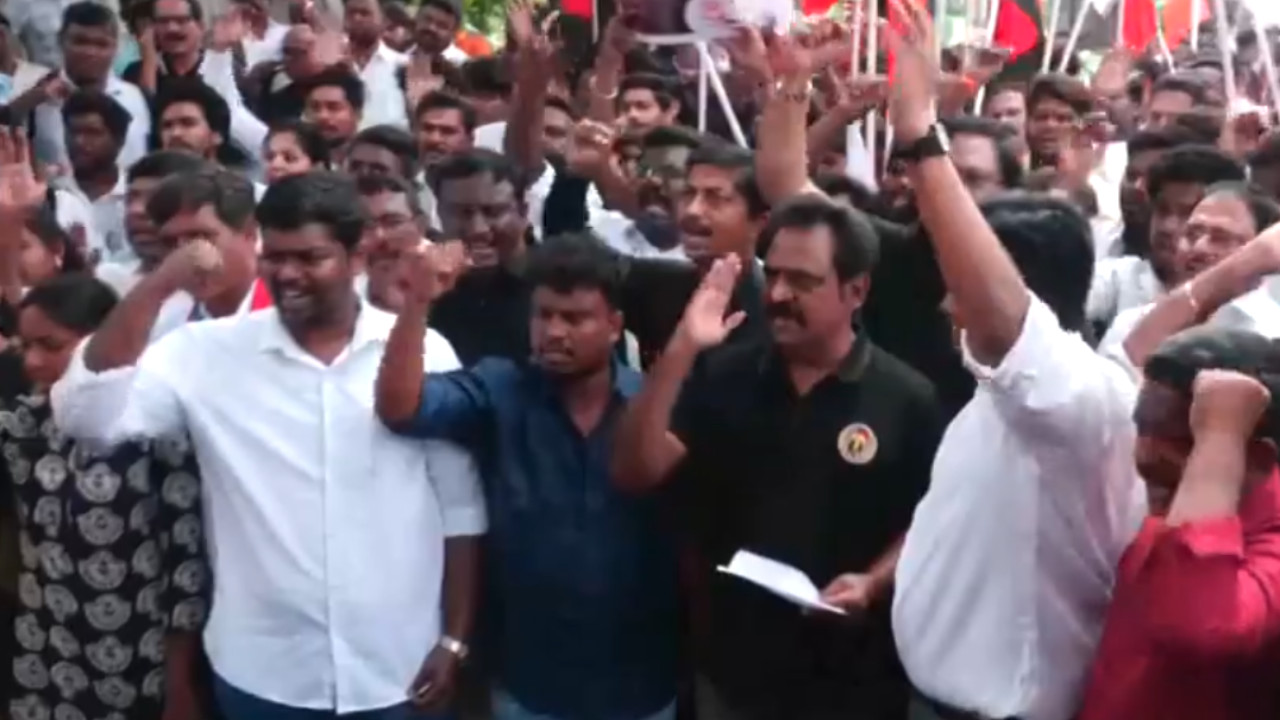
DMK Students Rally Against UGC Draft Rules: A Fight for Educational Integrity (X/ ANI)
New Delhi: On Friday, members of the DMK students' wing staged a significant protest at Valluvar Kottam in Chennai, voicing their opposition to the University Grants Commission's (UGC) new draft regulations concerning the appointment of Vice Chancellors. The demonstrators raised slogans targeting the BJP-led central government, emphasizing their discontent with the proposed changes. This protest follows Tamil Nadu Chief Minister MK Stalin's resolution in the State Assembly, where he condemned the draft rules as detrimental to the state's educational framework.
During his address in the Assembly, CM Stalin articulated his concerns regarding the UGC's draft rules, stating, "This Assembly considers that the recent UGC draft rules should be taken back. They are an assault on the idea of federalism and they affect Tamil Nadu's higher education system." His remarks reflect a broader apprehension about the implications of federal overreach in state education policies.
Stalin further criticized the New Education Policy (NEP), claiming it undermines the integrity of Tamil Nadu’s educational landscape. He lamented, "The New Education Policy is being imposed to spoil the education system.... We lost sister Anitha because of the NEET exam. NEET is filled with malpractices." This statement underscores his belief that recent educational reforms are harmful and unjust.
UGC's Controversial Guidelines
The UGC's new draft guidelines propose that candidates for faculty positions can qualify by passing the UGC-NET in any subject, regardless of their undergraduate and postgraduate disciplines. Education Minister Dharmendra Pradhan introduced these guidelines on Monday, which also expand eligibility for vice-chancellor roles to include professionals from various sectors such as academia, research institutions, and industry.These changes have sparked criticism from various quarters.
Kerala’s Higher Education Minister R Bindu has also voiced her opposition, asserting that these guidelines contravene the federal principles that govern education in India. She stated, "These guidelines are against the federal principles upheld by the nation... This is an attempt to reduce academic quality... Industrialists can also become vice-chancellors in universities. This is condemnable."
The ongoing protests and political discourse surrounding the UGC's draft rules highlight a significant clash between state and central authorities over educational governance in India. As stakeholders continue to debate these changes, it remains to be seen how they will impact Tamil Nadu’s higher education system and whether the proposed guidelines will be revised or retracted.





Copyright © 2026 Top Indian News
